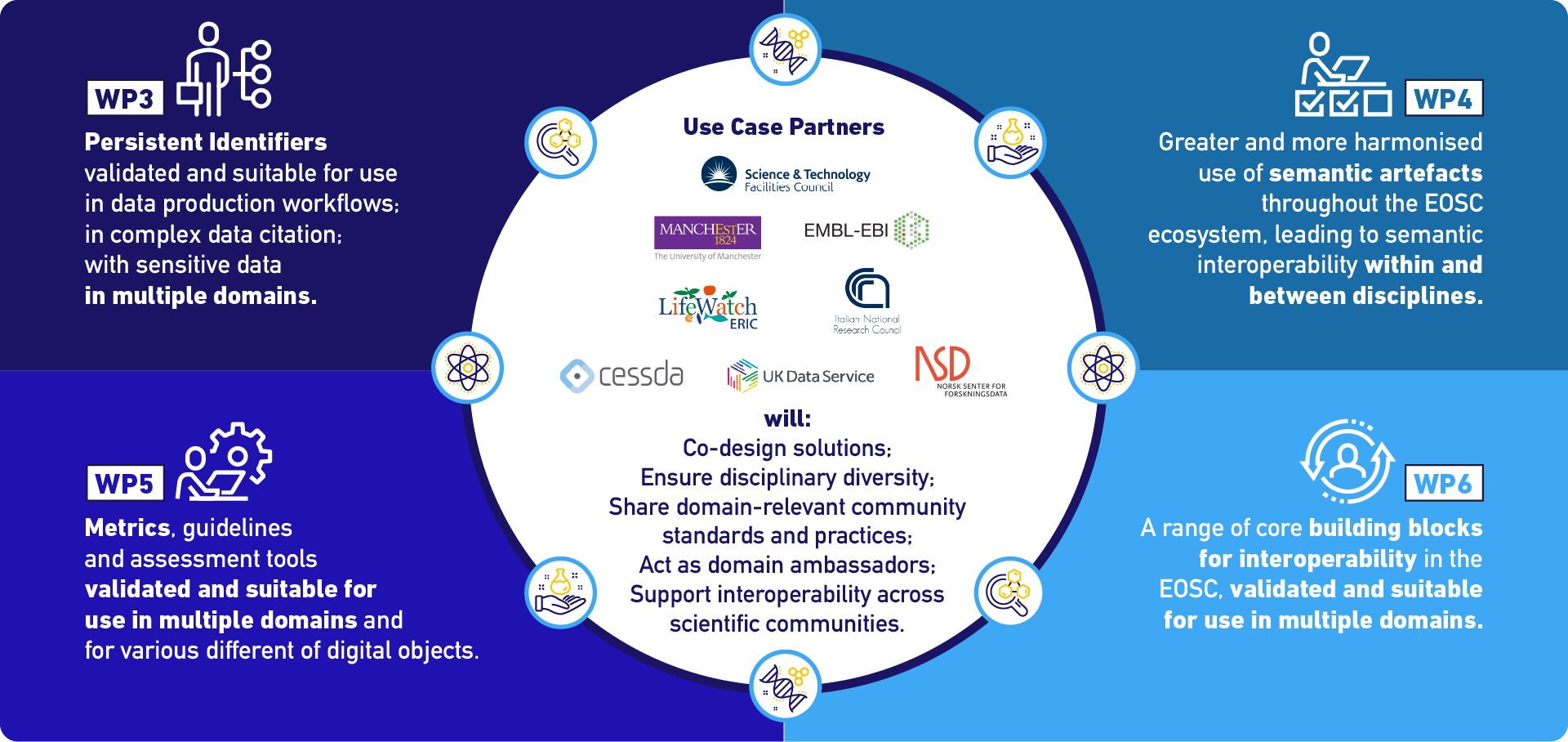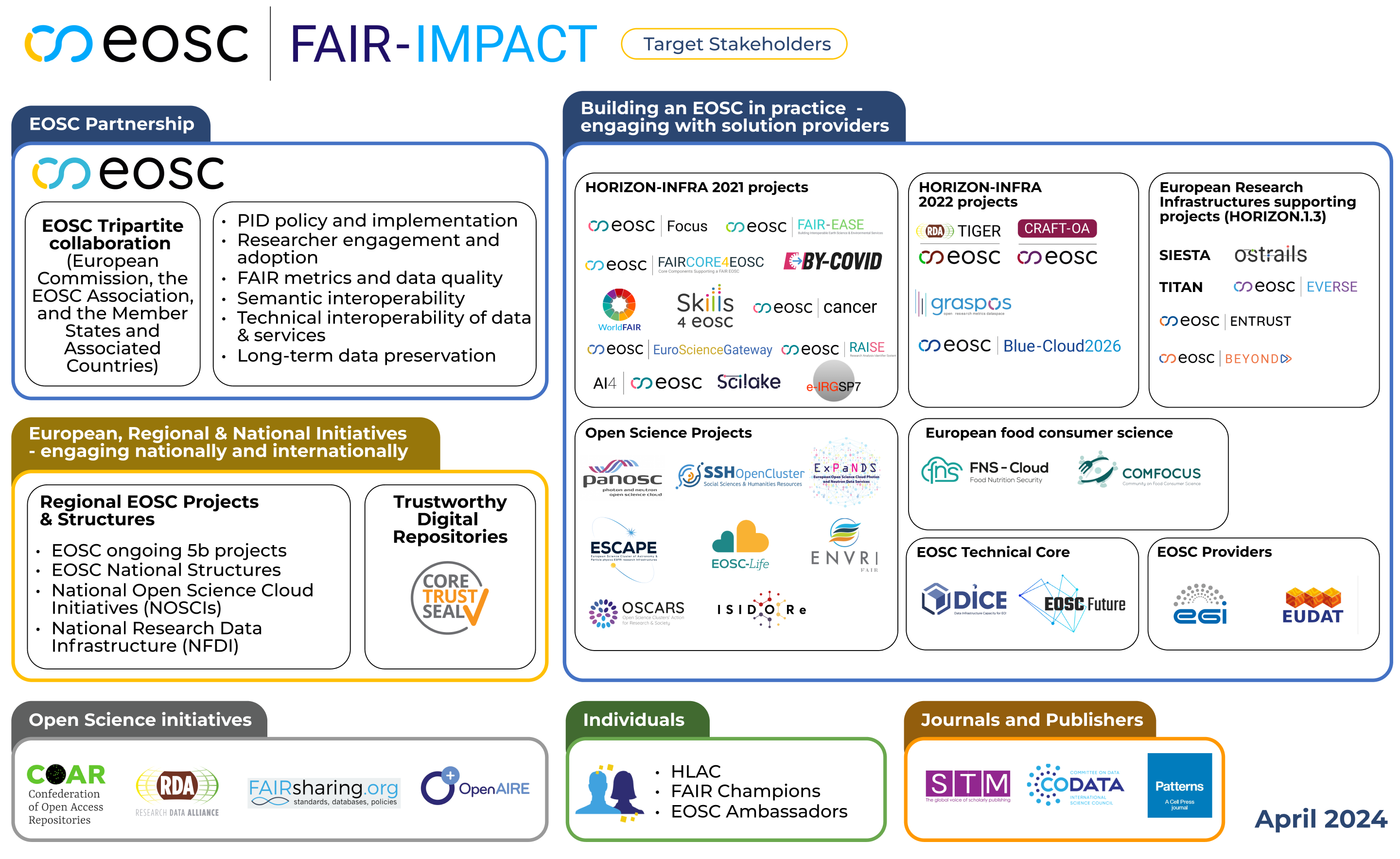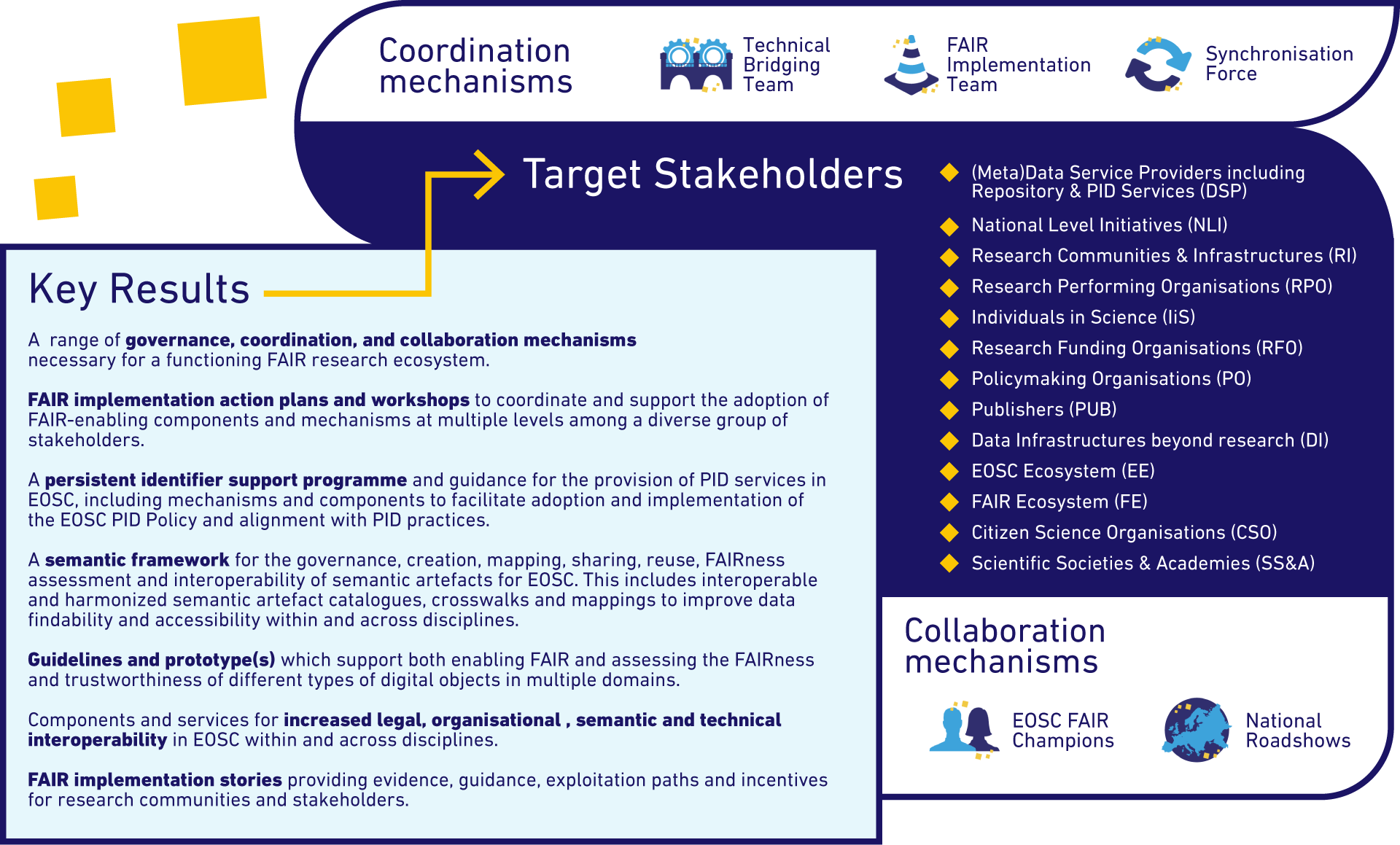In 2015 the vision of a European Open Science Cloud (EOSC) emerged. EOSC would provide an open and trusted environment for accessing and managing a wide range of publicly funded research data and related services, helping researchers reap the full benefits of data-driven science. EOSC is now entering its implementation phase (2021-2027) which requires active engagement and support to ensure widespread implementation and adoption of the FAIR (Findable, Accessible, Interoperable, Reusable) principles, to define and share standards and develop tools and services, to allow researchers to find, access, reuse and combine research results.
With the ambitious goal to realise an EOSC of FAIR data and services, the FAIR-IMPACT project responded to these needs by supporting the implementation of FAIR-enabling practices, tools and services across scientific communities at a European, national and institutional level
Practical implementation of the FAIR principles starting with integrated use cases on four scientific domains.
FAIR-IMPACT identifies practices, policies, tools and technical specifications to guide researchers, repository managers, research performing organisations, policy makers and citizen scientists towards a FAIR data management cycle. The focus is on persistent identifiers (PIDs), metadata, ontologies, metrics, certification and interoperability, starting with real-life use cases on social sciences and humanities, the photon and neutron sciences, life sciences and agri-food and environmental sciences.

Engaging stakeholders via open calls.
Wide uptake of FAIR data principles and practices by national and European providers and repositories is boosted via a cascading grants mechanism, that provides €500,000 funding via open calls to support around 50 projects to embed FAIR components and mechanisms across domains, geographic areas and stakeholder groups, using a transparent and open use case selection approach.
Coordination mechanisms.
In order to build a web of FAIR data and related services, FAIR-IMPACT is further supported by three coordination mechanisms:
- a Technical Bridging Team, leading and ensuring the technical alignment between FAIR-IMPACT and other strategic initiatives in the framework of the European Open Science Cloud (namely, FAIRCore4EOSC, EOSC Future and the EOSC Association);
- a FAIR Implementation Team, supporting adoption and implementation of FAIR-enabling practices, policies, tools or technical specifications;
- the Synchronisation Force, built on the successful Synchronisation Force series from the FAIRsFAIR project, in charge of establishing a dialogue among the various projects, initiatives and actors in both EOSC and FAIR ecosystems to reduce redundancy and ensure that solutions are more widely promoted, sustainable and can be transferred to the relevant EOSC Partnership and current and future EOSC stakeholders.

By enabling the FAIR principles for EOSC across scientific communities, stakeholder groups and research outputs at a European, national and institutional level, FAIR-IMPACT improves the access to and management of increasing volumes of FAIR data and other research outputs stimulating the development and uptake of a wide range of innovative services. By translating and implementing FAIR solutions across domains, the project is also contributing to the facilitation of multi-disciplinary scientific cooperation. Finally, with its focus on increasing FAIRness, FAIR-IMPACT contributes to improving public trust and reproducibility in science, contributing to transforming the way researchers share and exploit research outputs, ultimately leading to better quality, validation and higher productivity of research.
About
FAIR-IMPACT “Expanding FAIR solutions across EOSC” is funded by the European Commission Horizon Europe programme (GA 101057344). Coordinated by DANS and supported by 27 additional partners from 11 countries, the project officially started on the 1st of June 2022. FAIR-IMPACT will build on the successful practices, policies, tools and technical specifications arising from FAIRsFAIR, other H2020 projects and initiatives, and from the FAIR and other relevant Working Groups of the former EOSC Executive Board.
